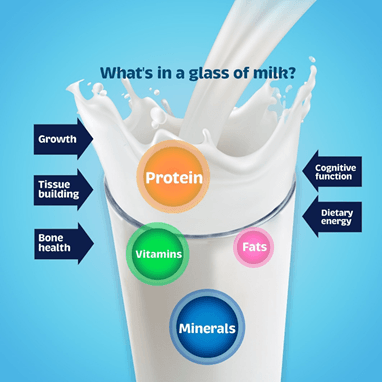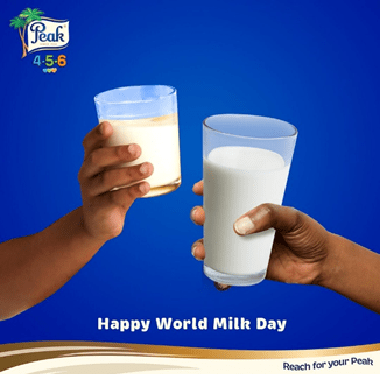Among the many blessings of Nigeria is the youthfulness of her population. Nearly half, precisely forty-six percent of Nigerians fall below the age of 15 and a close appraisal of the data further revealed that Nigerian under-five children are no fewer than 31 million.
To put this in context, about one out of every two Nigerians is a child. That the future, bright or otherwise, of a nation with as much children as Nigeria depends on the nature and amount of investment devoted into the care and development of these children is therefore understandable.
These children must be properly nurtured and adequately supported to grow and develop to their maximum potentials, and only then can they translate to becoming productive adults and meaningful contributors to the economic growth, development, peace and prosperity of their families and the nation at large.
The Role of Nutrition
Adequate nutrition is one critical requirement not only for survival but also for the optimal growth and brain development of children. Children require adequate amounts of macronutrients – carbohydrates, protein and fats – as well as micronutrients which are vitamins and minerals.

A consistent insufficiency of these and other relevant nutrients poses a very great danger to a child’s nutritional status and overall health. It is therefore important to ensure a varied, balanced and adequate diet for our children. To this end, a combination of food groups, contributing different nutrients to the diet, should be imbibed in feeding the children to ensure dietary diversity. Food groups include cereals (or grains), fruits, vegetables, meats/fish, legumes and milk (or dairy).
The Goodness of Milk
In the spirit of World Milk Day, which is an international day established by the Food and Agriculture Organization (FAO) of the United Nations to recognize the importance of milk as a global food, I would like to highlight the inherent nutritional values and benefits of milk and the need to consistently include it in the diet of children.
Milk is a nutrient dense food. Milk contains several nutrients and contributes significantly to the body's nutritional needs for nutrients such as calcium, magnesium, vitamin B12, selenium and riboflavin in addition to being a good source of dietary energy, protein and fat. Not many foods singlehandedly contain as much nutrients as in milk. Children below five years need more foods that are nutrient-dense compared to adults, to meet their increasing nutrient requirements.
Furthermore, milk contains all essential amino acids and is thus a complete source of protein unlike plant-based foods which are limiting in some essential amino acids like lysine and methionine. Milk thus makes it possible to complement these foods to obtain more complete nourishment. Also, not only does milk contain numerous nutrients, the nutrients are also bioavailable, implying better absorption and metabolism by young children. Combinations of nutrients like calcium, vitamin D, phosphorus and potassium in milk also confers bone health and strong teeth on the children. These benefits of milk justifies it as an important part of a healthy diet.

The first source of nutrition received by a baby after birth is breast milk. Rich in all essential nutrients including immunological factors, it provides complete nutrition for children to achieve their highest potential in physical growth and brain development. Little wonder it's a global public health recommendation that infants should be exclusively breastfed for the first six months of life after which appropriate complementary feeding should be commenced while breastfeeding is continued up unto at least two years.
Afterwards, it’s important that milk forms a major part of a child’s diet till adolescence and beyond. Sadly, food consumption studies have shown little or no consumption of milk and milk products by pre-school aged children in some Nigerian populations. Rather, what is seen is a predominance of plant-based foods in their diet thereby creating a protein quality gap.
DHA the essential brain food
In addition to the aforementioned is the appropriateness of milk as a vehicle to add specific nutrients of importance through fortification. Fortified milk is well accepted as an intervention to deliver specific micronutrients with sustained compliance. In this process, essential nutrients which hitherto are not available or only in small quantities can then be added to meet their recommended daily allowance (RDA). These nutrients include but are not limited to Vitamins A and D, Zinc, Iron, Folic acid and Docosahexanoic acid (DHA).
DHA is an omega-3 fatty acids predominantly found in the membrane of the brain and retina of the eye. The immense contributions of the nutrient to vision acuity and cognitive development of children have been well established. It is the most abundant omega-3 poly-unsaturated fatty acid present in the brain and is found in oily fish such as salmons, sardines and tuna.
Several studies suggest that higher maternal fish intake during pregnancy and lactation is associated with higher language and social skills, higher IQ, and more positive behavior in their children. While it can be synthesized from alpha-linolenic acid, another plant- based omega-3 fatty acid, this process is quite limited and inefficient thus necessitating the need to consume it directly from food or supplements.
At this juncture, I will to say that Peak 456 Growing-up milk is specially formulated with DHA and other key nutrients to support brain development and physical growth in children aged 4-6 years.
June 1 will always come and go, but the essence of the declaration of the day as a World Milk Day is to draw our attention to the goodness of milk. Nutritionally-deprived children may not be able to make much contributions in a world where knowledge economy is the order of the day.
Milk offers a world of benefits to support their physical and cognitive development. Children, we believe, are precious gifts from God and optimal care for them could be the most thoughtful form of appreciation. Let’s help them grow strong and smart. Happy World Milk Day!
Written by Adesanjo O. Oyejide, child nutrition expert














buy tadalafil: http://tadalafilonline20.com/ generic tadalafil united states
tadalafil buy – tadalafil buy tadalafil buy